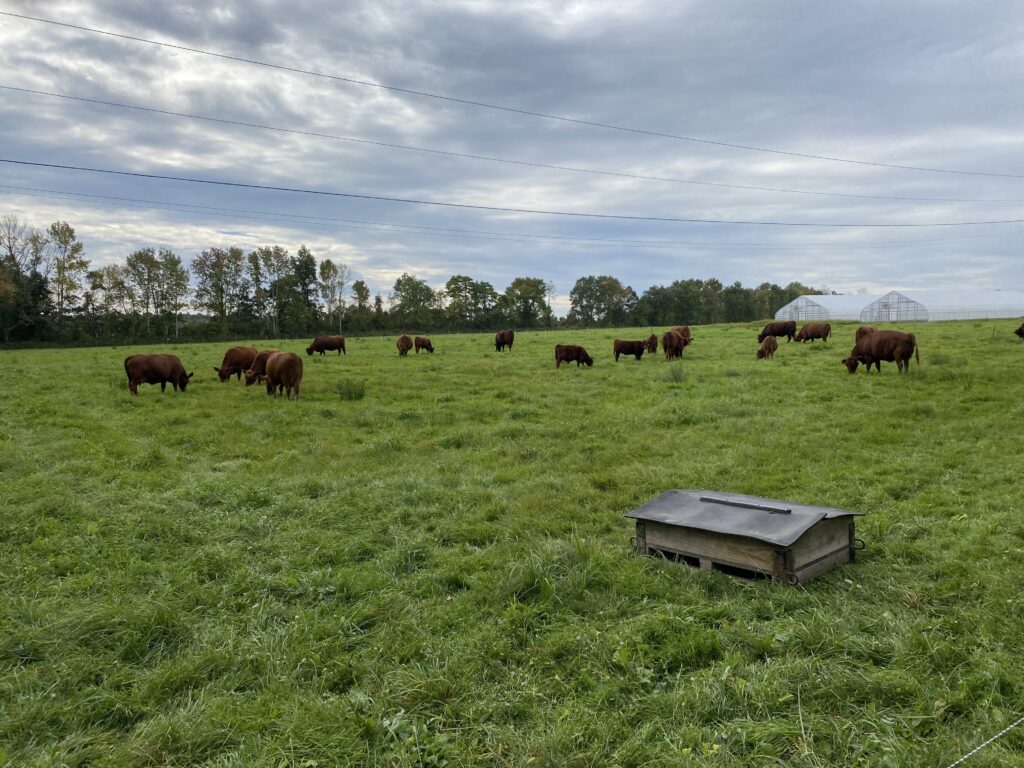Farming Practices
It is best to know your farmer and their practices. These practices matter both for your nutrition and the health of the land. Local farmers are both more accountable and more accessible. Take advantage of that opportunity.

Oxford Farms is a 130-acre piece of land with mountain top vistas, rolling pastures, forested areas and a scenic pond. It began as a farm back in the late 1700″s though it has seen many non-farming uses over the years. It is being managed as an ecosystem which is to say that it does more than produce food. It is a source of clean surface water, clean air, wildlife habitat, a balanced biology that favors native species over invasive ones and pests, a healthy functioning soil system that can remove carbon from the atmosphere and store it underground as well as cycle important minerals to the plants. Resilient and stable natural systems require biodiversity and complexity. This means diversity of animals, crops, land use rotations, intercropping, annual and permaculture plantings.
It is important to note that not all grazing systems have a positive effect on soil health. We are using Holistic Planned Grazing which mimics the steady movement of tightly packed buffalo across the Great Plains under the threat of predators. Fields on the farm will be alternated through grazing for several years to build soil health and cropping for several years before being grazed again. Legumes will be used for nitrogen fixation.

The animals are well cared for and live a stress-free life on this bucolic farm. They live together as herds, choose their diet from diverse pasture plants and have free access to well water, pure white Kansas salt, mineral supplements (developed by famous organic agricultural nutritionists), kelp, apple cider vinegar and clay (detoxifier). No pesticides, herbicides, insecticides or synthetic fertilizers are applied to the land.

Our resident Monarch butterflies indicate the ecological health of our land.
The soils are tested for the presence of minerals in the correct balance to support the nutrition of the grasses, the animals that graze on them and the people whom they feed. The well water has been tested for contaminants. Finally, the soils are being monitored by the Northeast Organic Farming Association (NOFA) to document the carbon cycling on the farm.